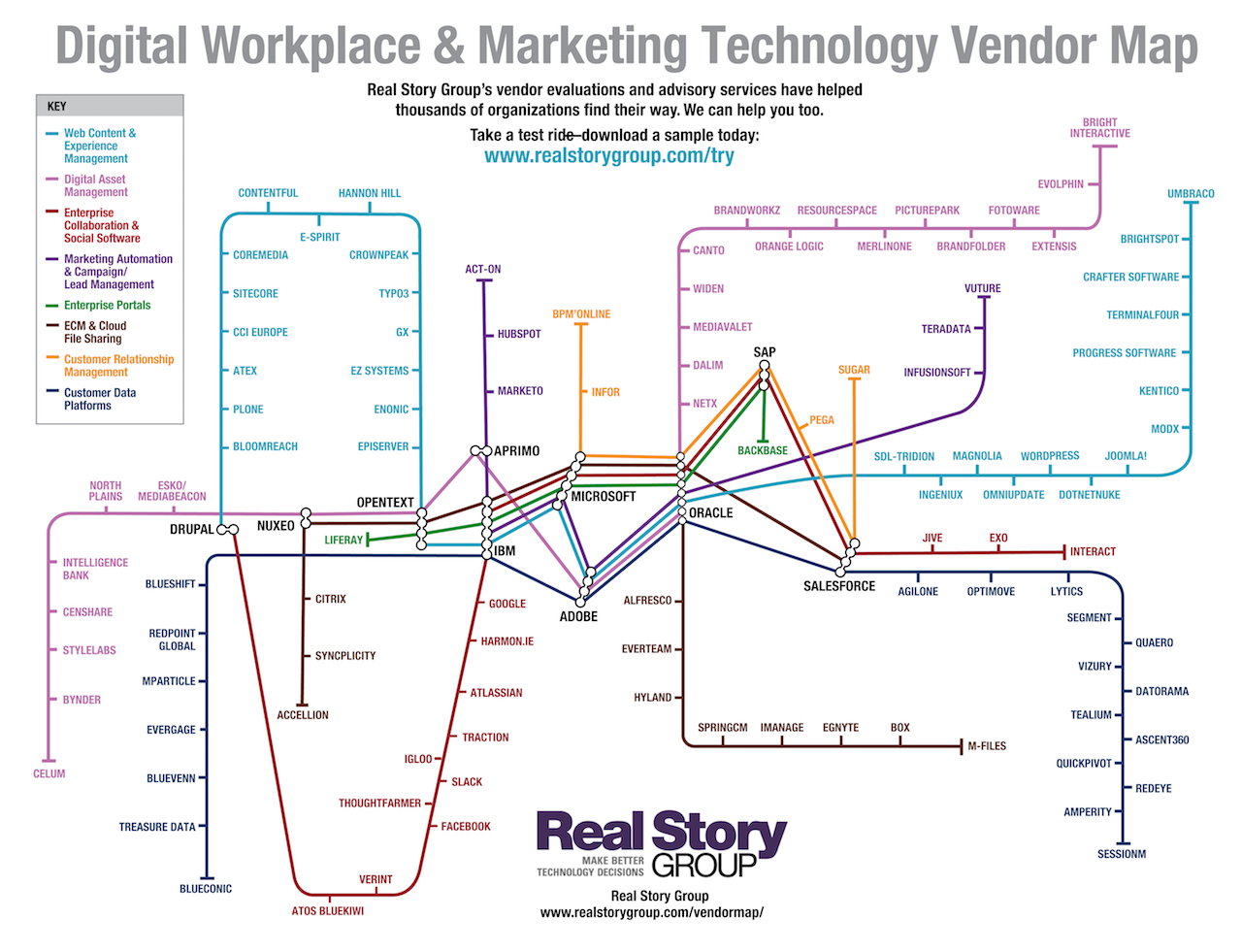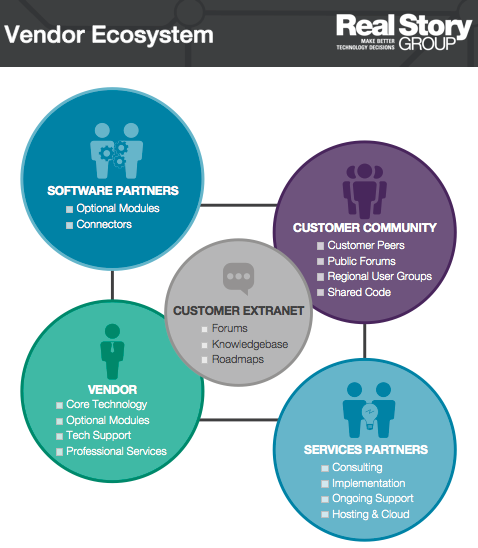ECM - from search to analytics
I led a session at last week's Info360 event in Washington DC called "ECM & BI - a Shotgun Marriage." I was unsure about it from the get-go, as my fear was that I would spend 45 minutes essentially making a single point: that these two things are largely incompatible.
What actually transpired was a bit more interesting.
We quickly agreed that traditional Business Intelligence (BI) has little real value in the world of Enterprise Content Management (ECM), beyond introducing the concept of dashboards for monitoring some activity. The reason being that BI delivers true value when it searches rows and columns across multiple databases (or Marts or Warehouses) of structured data. ECM systems are by definition filled full of unstructured files of information -- a messy, complex, and generally unsuitable dataset for BI tools.
That said there are exceptions. For example, if you make extensive use of Business Process Management (BPM), with sufficiently high throughput, you will build a substantial volume of structured data. This data will likely relate to when content moved between steps, what triggers were fired, times taken to execute tasks, and so forth. This is important data, that can be correlated, exposed in a dashboard, and provide rich monitoring information.
Beyond this though we move into a sort of limbo world that exists somewhere between real BI and Enterprise Search. This world gets described loosely as that of "analytics." It's an inexact term to be sure, but it makes some sense. Think of it this way....we use search to find a thing that is difficult to locate, while we use analytics to understand patterns across and within multiple things. Not rocket science (though the technology itself can be), but nevertheless profoundly different scenarios.
Search is the scenario that most people are most familiar with, and maybe most disillusioned about. Though I don't really buy into the belief that Search is a mature technology, the fact remains that enterprise search tools are typically asked to work against a corpus of junk, and no matter how smart the search tools get, the equation junk in = junk out remains a constant.
Analytics though comes from quite a different angle. The goal here is not to find a specific thing, rather it is to analyze trends, relationships, and patterns, and deliver back a parsed (translated) message. Consider for example analyzing five years of medical billing records, insurance claims forms, or for that matter police arrest reports. I don't know specifically what questions one might want to ask, but it doesn't take a huge stretch of the imagination to recognize that there is potentially a wealth of knowledge hidden within these particular types of information mountains.
Analytics tools have been with us in one form or another for many years -- but they have remained highly specialized. And just like BI technology, content analytics tools are typically expensive, complex to use, and appeal to a very niche audience. These tools will probably always remain nichey, yet many traditional names in the search world from Autonomy through IBM to Vivisimo are re-orienting their efforts in the analytics direction. In doing so they're edging away from the more traditional search market that's seemingly (but not really) dominated by Microsoft & Google offerings.
Hopefully this evolution can bring richer and more usable analytic functionality to a broader cross-section of the enterprise, by digging more deeply and widely into enterprise information stacks. It's an ongoing shift that we plan to watch very carefully over the coming year, because it's one that not only vendors are pursuing, but buyers too. There is a very measurable and definable need in enterprises today to "know what the enterprise knows," and it's a need that currently goes unmet.







